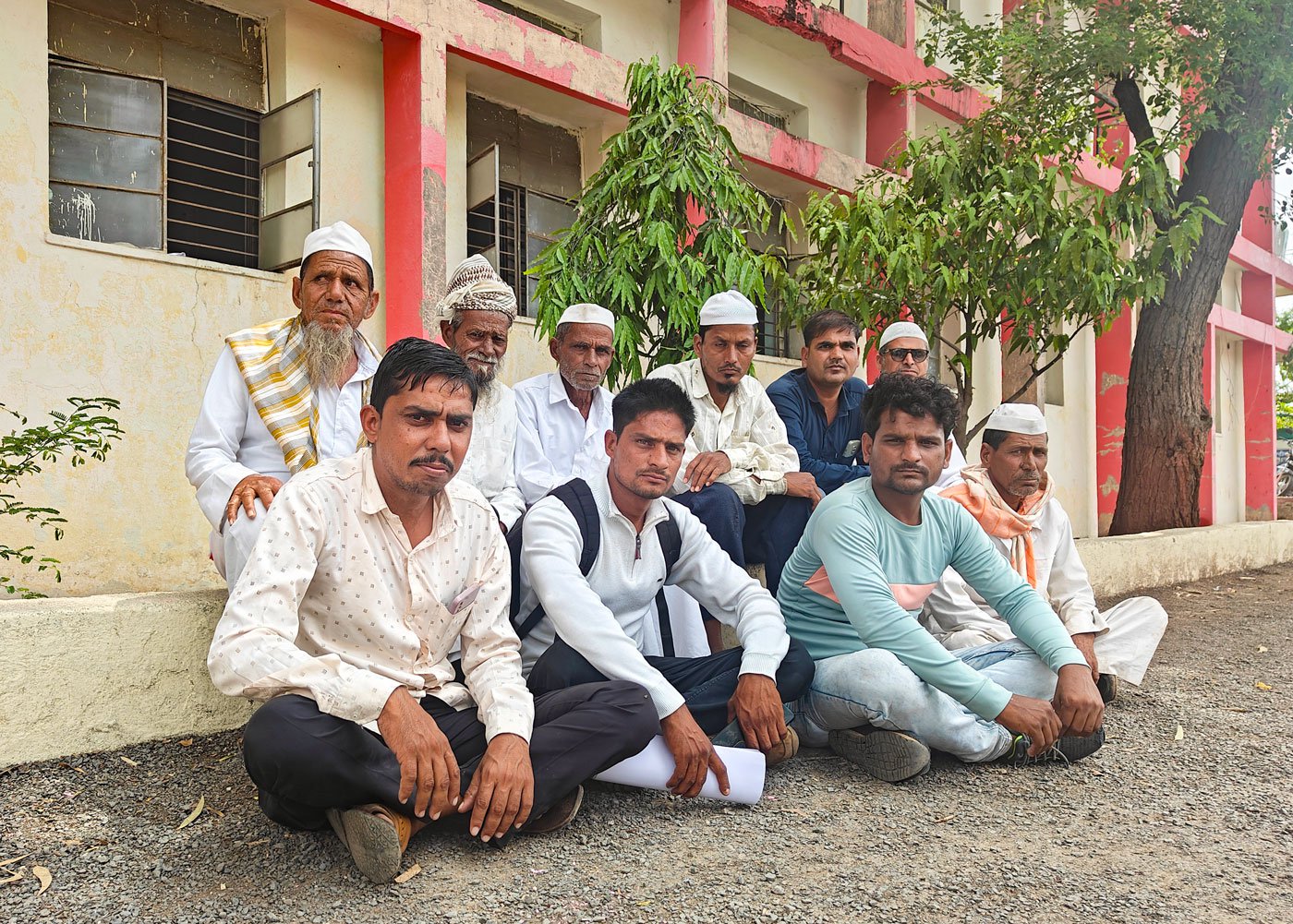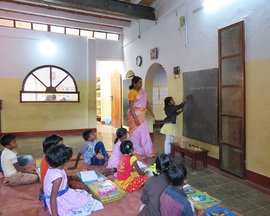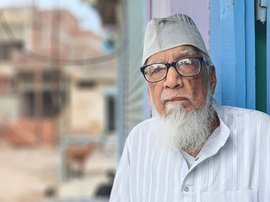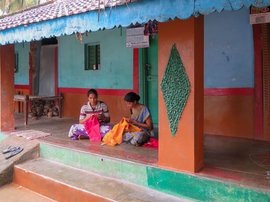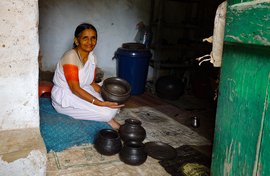For five days in mid-June of 2023, Ajim Sheikh sat on a fast in front of the Divisional Commissioner’s office in Aurangabad.
Despite the scorching heat, the 26-year-old man consumed nothing except water to remain hydrated. At the end of the fast, he was weak, drained and dizzy, struggling to even walk a straight line.
His demand? He just wanted to file a police complaint. But the local police station near his village in the neighbouring district of Jalna – about 80 kilometres from Aurangabad – wouldn’t write it up.
On May 19, 2023, members of the local Sonawane family – belonging to the Maratha community – barged into Ajim’s home at 11 at night and beat up his family with sticks and stones. His brother and parents sustained injuries. “My old mother had to be admitted to the hospital. It was a brutal assault,” he told PARI. “They even stole the jewellery and cash worth over Rs. 1.5 lakh from the house.”
When this reporter contacted Nitin Sonawane, who Ajim alleges was part of the mob, he refused to comment on the issue saying, “I don't know anything about the incident.”
Ajim’s house is located on his eight-acre farmland, about two kilometres from the settlement in their village of Palaskheda Murtad, in Bhokardan taluka in central Maharashtra.
“It
is secluded and quiet at night,” he says. “We couldn’t even call for help.”
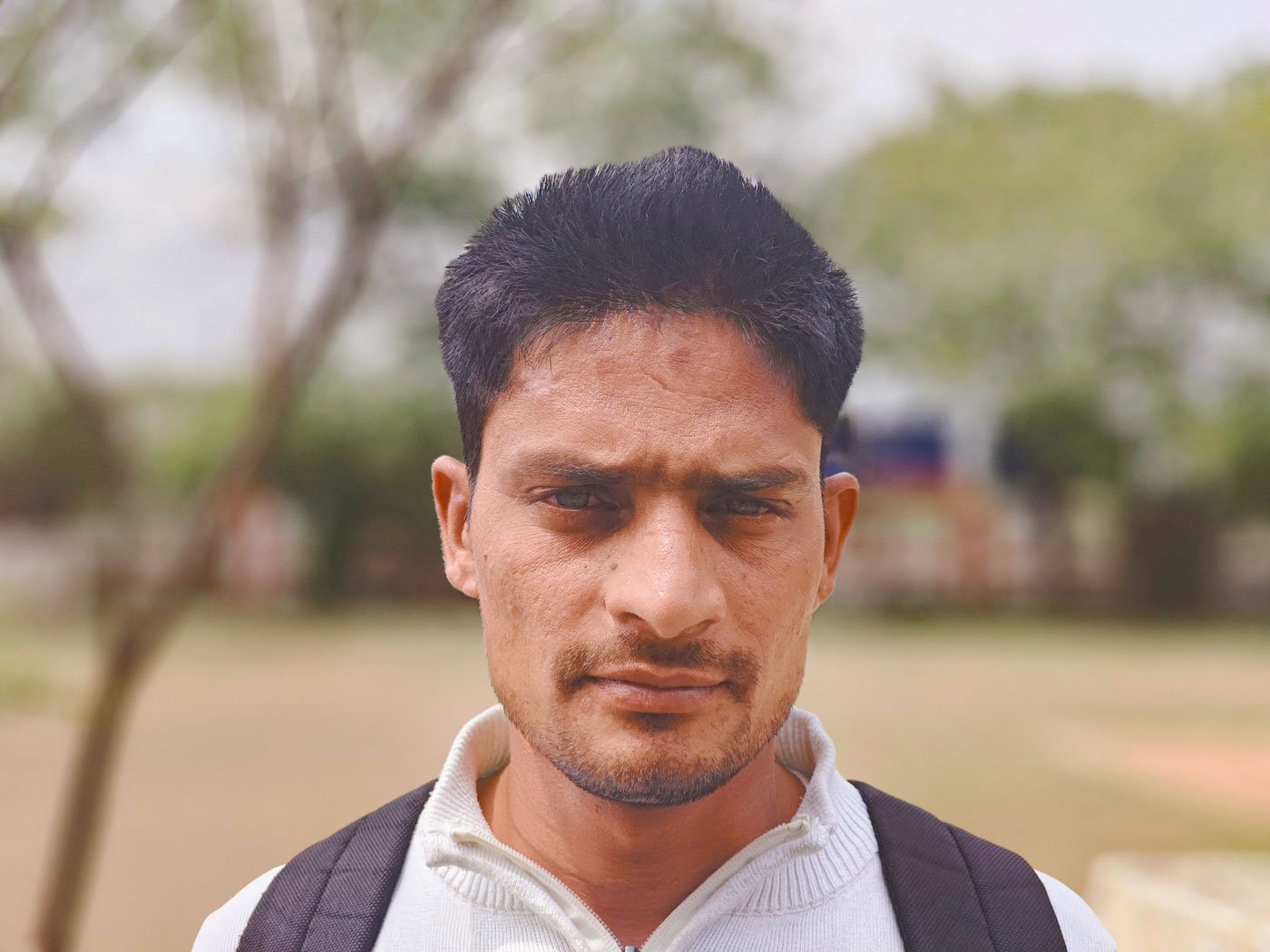
On May 19, 2023, Ajim and his family members were assaulted at their home in Palaskheda Murtad village of Jalna district
The assault, Ajim suspects, stemmed from a business rivalry. The two families are the only ones in their village that operate a JCB machine. “There is a [Jui] dam nearby,” says Ajim. “Farmers in the village need the silt from the catchment area to spread on their land for better harvest. Our business is to excavate the silt for farmers.”
Both families charge Rs. 80 an hour to farmers. “But when I lowered my rate to 70 rupees, I started getting more business,” says Ajim. “I was threatened after that, and when I didn’t bring my rate back up, they attacked my house. They even vandalised the JCB machine parked out in front.”
The next morning, Ajim went to the police station of Bhokardan, the taluka in which his village falls. However, the police refused to file a First Information Report (FIR). Instead, “the police threatened me,” he recalls. “They said I would get in trouble for complaining against that family. They are politically connected.”
According to Ajim, when he insisted his complaint be officially recorded, the police warned him saying the other family would file several counter complaints against him and have him evicted from the village.
“ Hi kasli law and order [How is this law and order]?” he asks. “It was a planned attack, where 25-30 people landed up in my house and wreaked havoc. It was traumatising and scary.”
For Ajim, it was a matter of principle. A matter of his self-respect. The idea that the Maratha family would get away with it didn’t sit well and so, “I didn’t back down. I pursued my complaint with the police station until they agreed to file a FIR.”
When the police finally relented, they told Ajim the FIR would not carry all the details; it would be diluted. “The police refused to include the bit where they stole cash and jewellery from us,” he says. “That was unacceptable to me.”
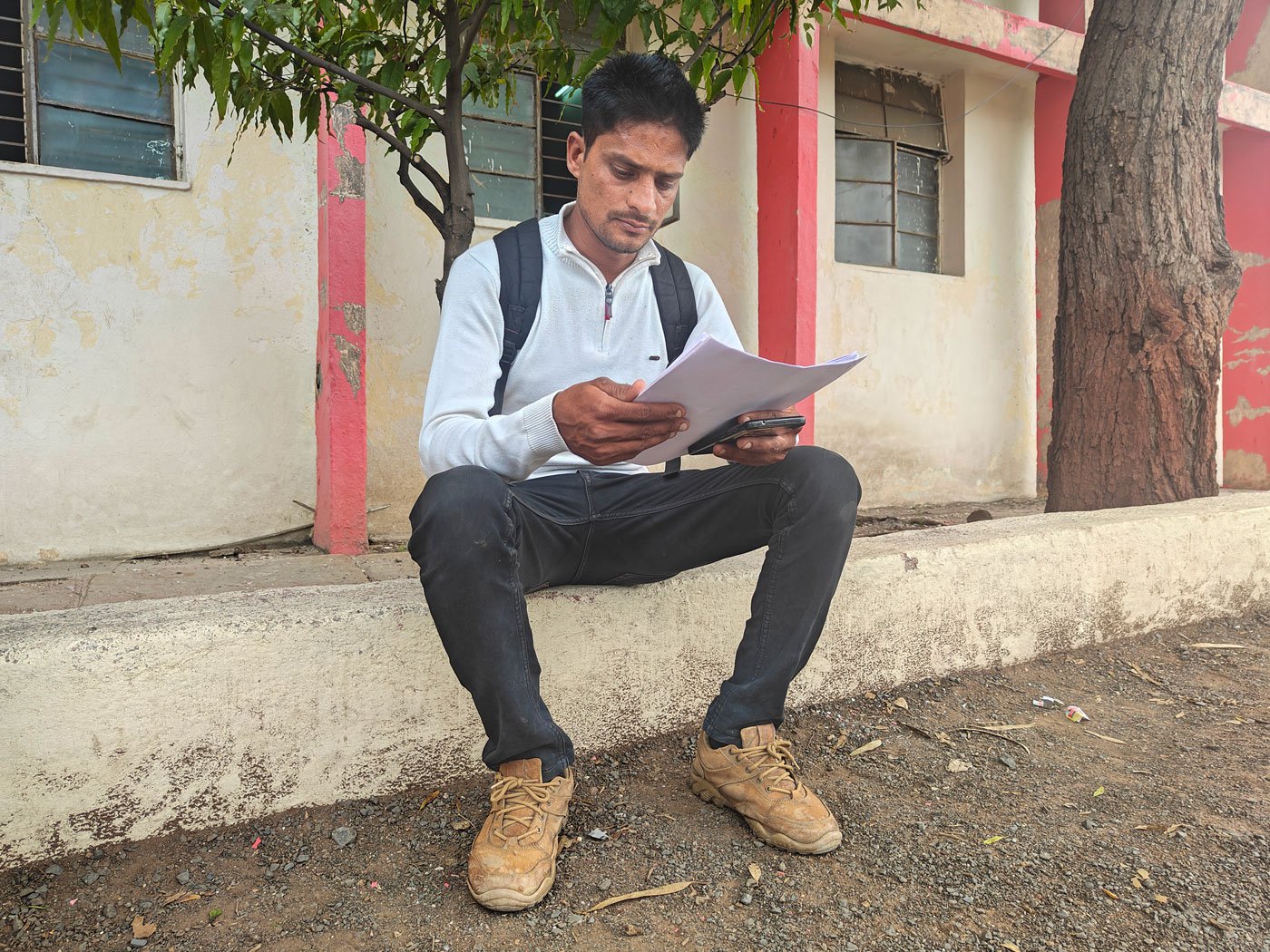
When Ajim first went to file an FIR at the station, he was warned by the police. 'They said I would get in trouble for complaining against that family. They are politically connected'
So, he went to the gram panchayat and presented his case in front of the important members of the village. Ajim’s family had lived in the village for generations. He was pretty confident about the support from the rest of the village. “I have had warm relationships with people in the village,” he says. “I was sure the people would support me.”
Ajim printed out a statement with all the details and appealed to the village to sign it in solidarity. He wanted to escalate the matter and present it to the Divisional Commissioner (DC) of Aurangabad who oversees all of Marathwada region.
Only 20 people signed the letter – all Muslims. “Some people privately told me they are with me but were afraid to do it openly.”
And it was at that moment, when suddenly the fault lines in the village cracked open. “I hadn’t realised my village was so divided along communal lines,” says Ajim. Many Hindus didn’t want to speak on record, and those that did, dismissed any religious angle for the lack of support as well as any tension.
Off the record, Hindu farmers said they couldn’t take a stand out of fear of retribution. The situation is volatile, they said, and they didn’t want to be caught in the middle of anything.
Bhagwan Sonawane, 65, the sarpanch of the village for 20 years now, says one could feel the communal tension at the time, but things have calmed down. “Of course, when two families belonging to two religions get into a fight like that, it will have an impact on the entire village,” he says.
“Ajim wasn’t at fault in this instance. But people in the village preferred to mind their own business and not get involved in it,” said Sonawane, a Maratha himself. The last time Hindu-Muslim disharmony had become an issue in our village was 15 years ago. “In recent times, it was peaceful until this happened,” he adds.
The village of Palaskheda Murtad is perhaps symbolic of the rest of the
district of Jalna, and even the state of Maharashtra, now embroiled in communal
disharmony.
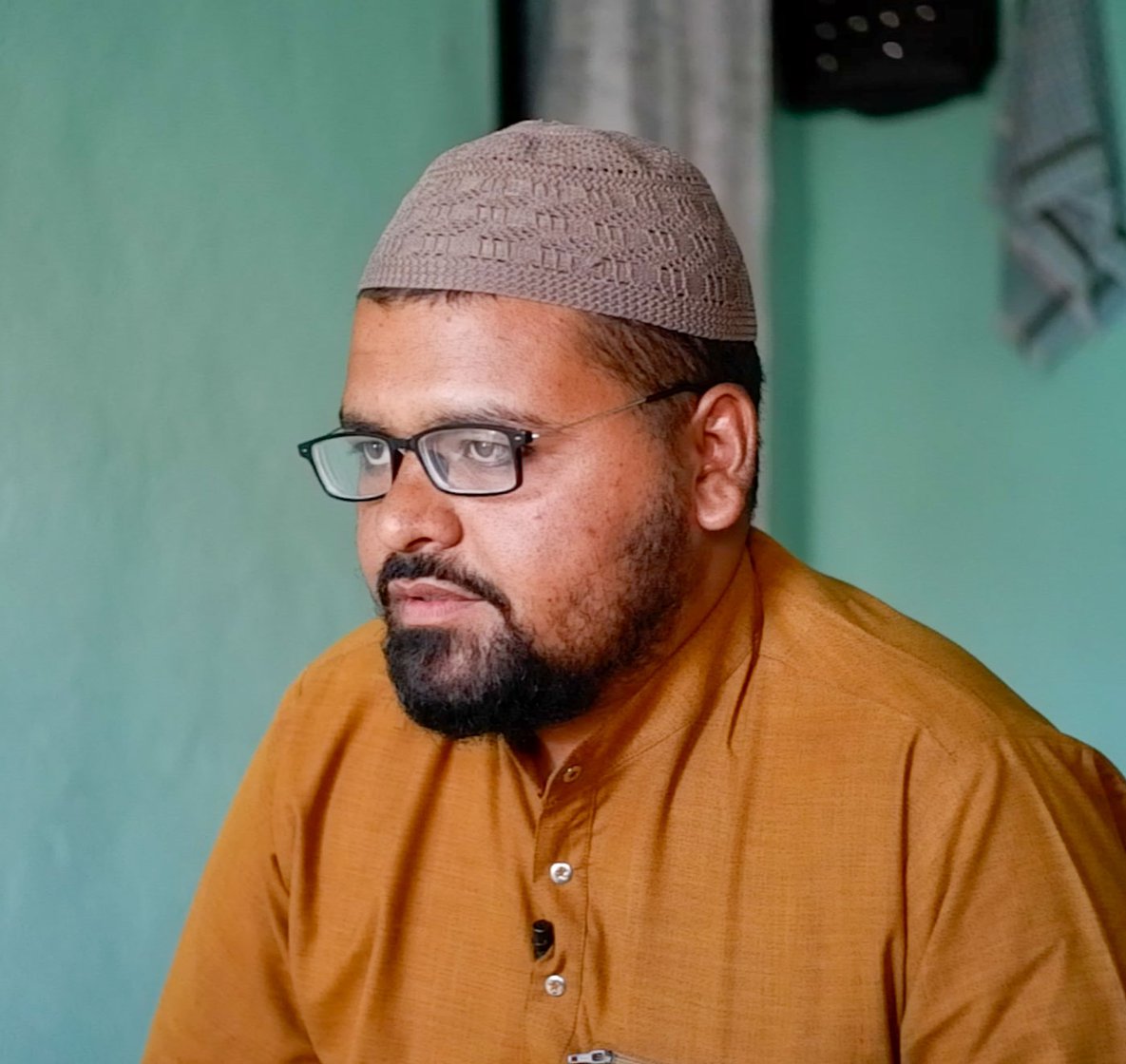
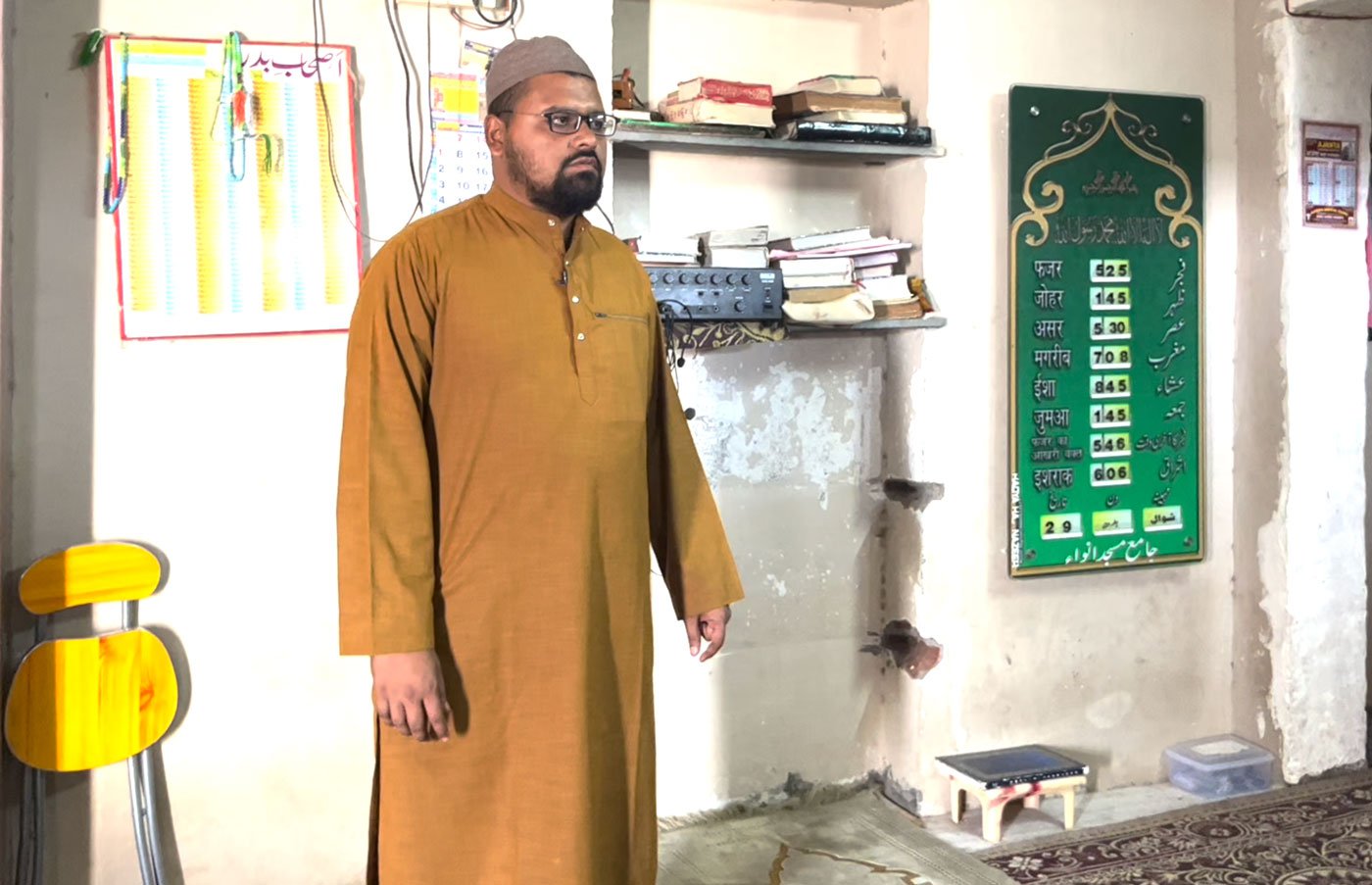
Saiyyad Zakir Khajamiya was attacked by men in black masks who barged into the mosque and beat him when he refused to chant Jai Shri Ram. At his home (right) in Anwa village
On March 26, 2023, Saiyyad Zakir Khajamiya, a religious scholar, was quietly reading the Quran at a mosque in his village of Anwa in Jalna district. “At the time, three unknown men barged into the mosque and asked me to chant Jai Shri Ram,” the 26-year-old told the police. “When I refused to do so, they kicked me in the chest, beat me up, and even pulled my beard.”
According to his testimony, the men, their faces covered with black masks, beat him until he was unconscious and shaved his beard. He is currently being treated at a hospital in Aurangabad, about 100 km away.
His experience is not unusual. Abdul Sattar, head of a neighbouring village, says the situation has been extremely tense. “The police have done nothing to reassure the Muslim community,” he says. “It doesn’t get reported as much but such instances have become part of our daily lives.”
On June 19, 2023, Jalna police charged an 18-year old Muslim boy, and a son of small farmers, Taufiq Bagwan, with “deliberate and malicious intention of outraging the religious feelings” after he uploaded a picture of Aurangzeb – a 17th century Mughal king.
His elder brother, Shafiq, 26, says the right-wing groups in his village of Hasnabad took screenshots of Taufiq’s story and went to the police station. “The police confiscated Taufiq’s phone to investigate who else had uploaded the photograph,” says Shafiq. “My brother is just 18. He is shaken and disturbed.”
Hasnabad is in the same taluka of Bhokardan, where Ajim’s village is located. The cooperation and proactiveness of the police in filing a FIR against a social media post stands in stark contrast to the physical assault Ajim had to endure.
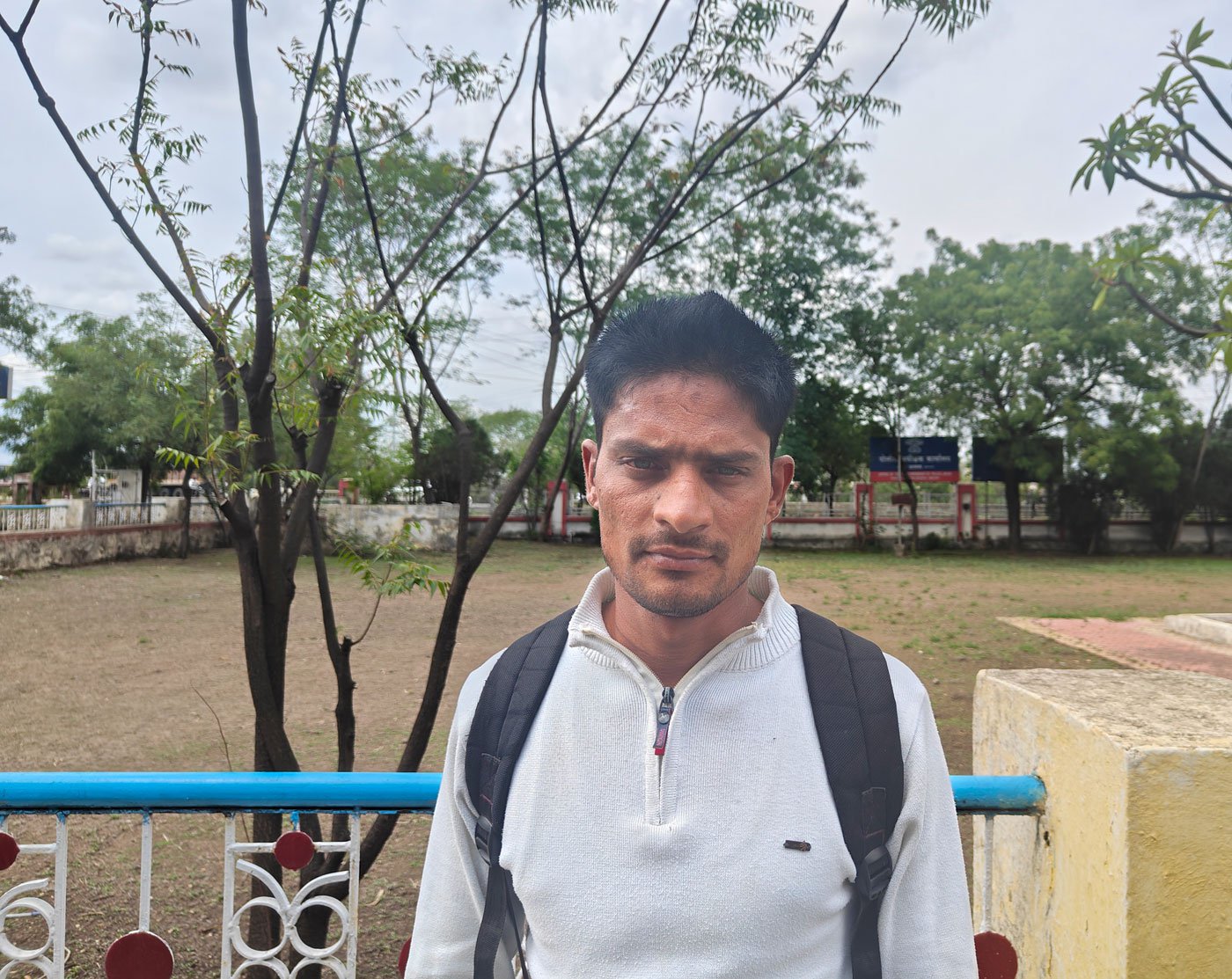
It was only after Ajim's protest in front of the DC's office in Aurangabad, and his meeting with the Jalna SP, that the Bhokardan police finally filed an FIR
After the police told Ajim it would file a diluted FIR, he presented the letter with signatures of 20 other Muslim villagers and went to the DC in Aurangabad. Some of the other Muslim farmers from the village also joined Ajim in his fast. “It is like we don’t matter,” he says. “We have become invisible to the authorities.”
Five days later, the DC met with Ajim and the other protestors, and assured action. He told them to approach the superintendent of police in Jalna.
After the protest in Aurangabad, Ajim met with the Superintendent of Police (SP) in Jalna town and presented the same letter that detailed the assault. The SP called the Bhokardan police station, and told the police to take cognizance of the matter.
Finally, on July 14, Bhokardan police filed a complaint – almost two months after the incident; it named 19 people in the FIR, including Nitin. The offences include unlawful assembly, rioting, causing hurt by dangerous weapons, causing damage for Rs. 50 or above, and criminal intimidation.
However, the bit about stealing jewellery and cash still didn’t make it to the FIR.
“Ideally, there should be action against the police officers for not filing my complaint properly,” says Ajim. “But that is too much to expect. Had it been a Muslim accused of such a crime, it would have been a completely different story.”
Repeated calls and attempts by this reporter to speak to the police inspector at Bhokardan police station went unanswered.